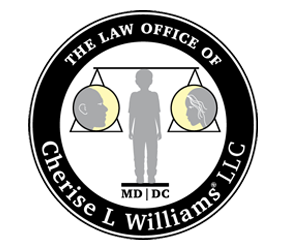Modifying Child Custody in Maryland and D.C.: What You Need to Know
December 26, 2024
In Rockville, MD, and the D.C. area, parents often believe that significant changes in their own circumstances—such as a new job or relocation—automatically justify modifying a custody arrangement. However, Maryland and D.C. courts focus on the **child’s best interests**, meaning modifications will only be approved if the change directly benefits the child’s emotional, physical, or mental well-being.
Misconceptions About Custody Modifications
A common misunderstanding is that a parent's life change is enough to alter custody. While a better job or larger home may be a positive development for a parent, unless these changes directly improve the child’s stability or well-being, they are unlikely to justify a custody modification.
Can a Child’s Wishes Be Considered?
Many parents wonder if the court will consider their child’s preferences. While there is no set age in Maryland or D.C., the court may consider a child’s wishes if they are mature enough—typically around 12 to 16 years old. However, this is just one factor, and the final decision is always based on the child’s overall best interests.
Situations That Might Lead to Custody Modifications
Here are some common scenarios where parents seek custody modifications, and why they may or may not meet the court’s standards:
1. Inconsistent Custody Compliance - If one parent repeatedly fails to pick up the child or follow the agreed schedule, this could justify a modification. However, courts look for patterns of non-compliance
that negatively affect the child’s stability. One or two missed pick-ups are unlikely to be enough, but consistent failures could lead to changes. In some cases, it may be more appropriate to seek enforcement
of the current agreement rather than a modification.
2. Child Left Home Alone - If a parent leaves the child unattended, it raises questions about safety. However, unless it becomes a pattern or puts the child in danger, it may not be enough to modify custody. A one-time lapse in judgment where no harm is done might not meet the legal threshold for modification.
3. Changes in the Child’s Needs - As children grow, their needs change. If the child requires different educational, medical, or emotional support that one parent is better positioned to provide, this could lead to a modification.
4. Safety or Stability Concerns - If one parent’s environment becomes unsafe due to substance abuse or frequent relocations, the court may modify custody to protect the child’s well-being.
What Courts Consider in Custody Modifications
When deciding whether to modify a custody agreement, Maryland and D.C. courts consider the best interests of the child, evaluating several key factors:
1. The Child’s Preference
(if mature enough)
2. Changes in the Child’s Needs
(e.g., health or education)
3. Stability and Continuity
in the child’s life
4. Parental Cooperation and Communication
5. Safety Concerns
(e.g., neglect or unsafe conditions)
6. Parental Fitness
(ability to provide a stable home)
7. Impact on Education and Social Development
Patterns vs. One-Time Incidents
When evaluating custody modifications, courts typically focus on patterns of behavior
rather than isolated incidents. For example, one missed pick-up or a single incident of leaving a child home alone may not be enough to modify custody. However, if these actions become recurring issues that affect the child’s stability or safety, they could justify a change in custody. In many cases, it may be more appropriate to first pursue enforcement of the existing order before requesting a modification.
Custody Modifications Are About the Child’s Best Interests
In Maryland and D.C., courts prioritize the child’s best interests when considering custody modifications. While various situations—such as inconsistent parenting or safety concerns—may prompt a request for change, the court will only act if there is clear evidence that the modification will benefit the child. Isolated incidents usually aren’t enough; courts look for ongoing patterns that impact the child’s well-being.
More Posts

